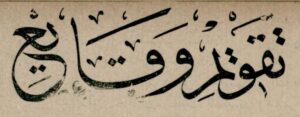Takvim-i Vekayi
The Calendar of the Ottoman and Turkish Studies Virtual Events Communication Platform
If you are interested in submitting your events to be posted on this platform’s calendar, the Takvim-i Vekayi, please fill out this form and e-mail it to osta.webmaster@gmail.com and otsa.webeditor@gmail.com copying secretariattsa@gmail.com at least ten days before your event. The form will be processed within a week of receipt. We are grateful to our volunteer webmaster, Gharam Alsaedi, a UC Davis Computer Science senior, and our volunteer web editor Molly Powers, a UC Davis junior double majoring in International Relations and History, for their work on the Takvim-i Vekayi and to Professor Carole Woodall for her initiative in creating this calendar.

- This event has passed.
[Center for Middle East Studies – University of California, Santa Barbra] Spiritual Subjects: Central Asian Pilgrims and the Ottoman Hajj at the End of Empire
March 4, 2021 @ 4:00 pm - 5:30 pm PST
At the turn of the twentieth century, thousands of Central Asians made the annual pilgrimage to Mecca. Traveling long distances, many lived for extended periods in Ottoman cities dotting the routes, effectively blurring the lines between pilgrims and migrants, and the legal boundary between Ottomans and foreigners. As the Ottoman Empire sought to promote a universal Islamic caliphate, while also more narrowly defining subjecthood and limiting extraterritorial rights among foreigners, Central Asian pilgrims tested each of these projects and became the sultan’s spiritual subjects.
Lâle Can’s Spiritual Subjects examines the paradoxes of nationality reform and pan-Islamic politics in Ottoman history. By tracing the journeys of ordinary people and their encounters with Ottoman state and society, Dr. Can unravels how imperial belonging was shaped through Islamic networks and legal practices. At the crossroads of hajj and the changing international legal order, a complex system emerged in which it was possible by law for Muslims to be both foreigners and subjects of the sultan-caliph. This panoramic story informs broader global developments during the steamship era, and has important implications for how we understand subjecthood in the last Muslim empire as well as the legacy of religion in the Turkish Republic.
